Generative AI Course







Generative AI certification course
Our program is widely recognized as the best Generative AI training in Vadodara, thanks to its blend of comprehensive theory and hands-on learning. Throughout the course, you’ll dive into the core principles of cutting-edge generative models, including Variational Autoencoders (VAEs), Generative Adversarial Networks (GANs), and Transformer-based architectures.
What will I learn?
- Understand the fundamental concepts and techniques of generative AI.
- Implement and train various generative models using Python and deep learning frameworks.
- Apply generative AI techniques to create new images, text, and other forms of content.
- Evaluate the performance and quality of generative models.
- Explore advanced topics in generative AI, such as style transfer and latent space manipulation.
- Understand the ethical implications and societal impacts of generative AI.
Requirements
- Proficiency in Python programming
- Basic understanding of machine learning and deep learning concepts
- Familiarity with neural networks and deep learning frameworks (TensorFlow, PyTorch)
Generative AI Course Content
- Generative AI
- Why are generative models required?
- Understanding generative models and their significance
- Generative AI v/s Discriminative Models
- Recent advancements and research in generative AI
- Gen AI end-to-end project lifecycle
- Key applications of generative models
- Text Preprocessing and Word Embedding
- Segmentation and Tokenization
- Change Case, Spell Correction
- Stop Words Removal, Punctuations Removal, Remove White Spaces, Stemming and Lemmatization
- Parts of Speech Tagging
- Text Normalization, Rephrase Text
- One hot encoding,
- Index-based encoding
- Bag of words,
- TF-IDF
- Word2Vec,
- FastText
- N-Grams, Elimo
- Bert-based encoding
- Application and use cases of LLMs
- Transfer learning in NLP
- Pre-trained transformer-based models
- How to perform finetuning of pre trained transformer based models
- Mask language modeling
- BERT- Google, GPT- OpenAI
- T5- Google
- Evaluations Matrixs of LLMs models
- GPT-3 and 3.5 Turbo use cases
- Learn how Chatgpt trained
- Introduction to Chatgpt- 4
- Hugging face And its Applications
- Hugging Face Transformers
- Hugging face API key generation
- Hugging Face Transfer learning models based on the state-of-the-art transformer architecture
- Fine-tuning using a pre-train models
- Ready-to-use datasets and evaluation metrics for NLP.
- Data Processing, Tokenizing and Feature Extraction with
- Standardizing the Pipelining
- Training and callbacks
- Language Translation with Hugging Face Transformer
- Generative AI with LLMs and LLM Powered Applications
- Text summarization with hugging face
- Language Translation with Hugging Face
- Transformer
- Text to Image Generation with LLM with hugging face
- Text to speech generation with LLM with hugging face
- Guide to Open AI and its Ready to Use Models with Application
- What is OpenAI API and how to generate OpenAI API key?
- Installation of OpenAI packageExperiment in the OpenAI playground
- How to setup your local development environment
- Different templates for prompting
- OpenAI Models GPT-3.5 Turbo DALL-E 2, Whisper, Clip,
- Davinci and GPT-4 with practical implementation
- OpenAI Embeddings and Moderation with Practical
- Implementation of Chat completion API,
- Functional calling and Completion API
- How to manage the Tokens
- Different Tactics for getting an Optimize result
- Image Generation with OpenAI LLM model
- Speech to text with OpenAIUse of Moderation for content complies with OpenAI
- Understand rate limits, error codes in OpenAPI
- OpenAI plugins connect ChatGPT to third-party applications.
- How to do fine-tuning with custom data
- Project: Finetuning of GPT-3 model for text classification
- Project: Telegram bot using OpenAI API with GPT-3.5 turbo
- Project: Generating YouTube Transcript with Whisper
- Project: Image generation with DALL-EPrompt Engineering Mastering with OpenAI
- Introduction to Prompt Engineering
- Different templates for prompting
- Prompt Engineering: What & Why?
- Prompt Engineering & ChatGPT Custom Instructions
- The Core Elements Of A Good Prompt
- Which Context Should You Add?
- Zero- One- & Few-Shot Prompting
- Using Output Templates
- Providing Cues & Hints To ChatGPT
- Separating Instructions From Content
- Ask-Before-Answer Prompting
- Perspective Prompting
- Contextual Prompting
- Emotional Prompting
- Laddering Prompting
- Using ChatGPT For Prompting
- Find Out Which Information Is Missing
- Self-evaluative Prompting
- ChatGPT-powered Problem Splitting
- Reversing RolesMore Prompts & Finding Prompt Inspirations
- Super Prompts Like CAN & DAN
- Vector database with Python for LLM Use Cases
- Storing and retrieving vector data in SQLite
- Chromadb local vector database part1 setup and data insertion
- Query vector data
- Fetch data by vector id
- Database operation: create, update, retrieve, deletion, insert and update
- Application in semantic search
- Building AI chat agent with langchain and openai
- Weviate Vector Database
- Pinecone Vector Database
- Hands-on with LangChain
- Practical Guide to LlamaIndex with LLMs
- Bonus: Additional Productive Tools to ExploreChainlit ( async Python framework)
- LIDA (Automatic Generation of Visualizations and
- Infographics)
- Slidesgo ( AI Presentation Maker )
- Content Creation (Jasper, Copy.ai, Anyword)
- Grammar checkers and rewording tools (Grammarly, Wordtune, ProWritingAid)
- Video creation (Descript, Wondershare Filmora, Runway)
- Image generation (DALL·E 2, Midjourney)
- Research (Genei, Aomni)
Get in touch
400+ Global Employment Partners








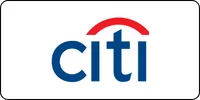

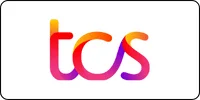

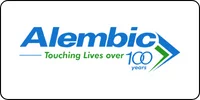
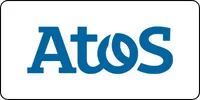
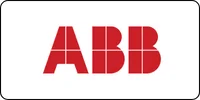

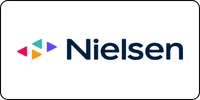


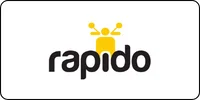



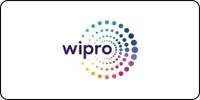



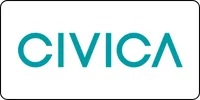



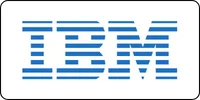
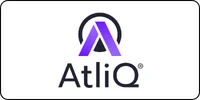
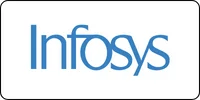


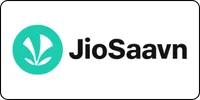


Why Choose Generative AI Certification Course from Bright Computer Education?

Designed Curriculum
Our curriculum covers everything from basic to advanced topics. Topics include variables, data types, control structures, functions, OOP, STL, and more.

Hands-on Learning
Dive into practical exercises and coding projects that reinforce learning and help you build real-world applications.

Experienced Instructors
Learn from industry experts with years of experience in C programming and software development.
Flexible Learning
Choose from flexible scheduling options, including self-paced learning or live virtual classes to fit your busy lifestyle.
Career Development
Gain valuable skills sought after by employers in various industries, from software development to embedded systems and beyond.
Interactive Learning
Engage with fellow learners and instructors through live Q&A sessions, discussion forums, and collaborative coding exercises.
Diverse Career Opportunities in Generative AI: Exploring Paths in India's Technology Sector
Frequently Asked Questions
Recently View Courses
Course Details Curriculum Placement FAQ’s Deep Learning Certification Course The Deep Learning Certification Course...
Read MoreCourse Details Curriculum Placement FAQ’s Data Structures & Algorithms Certification Course Master the foundation...
Read MoreCourse Details Curriculum Placement FAQ’s Generative AI certification course Step into the rapidly evolving...
Read More
